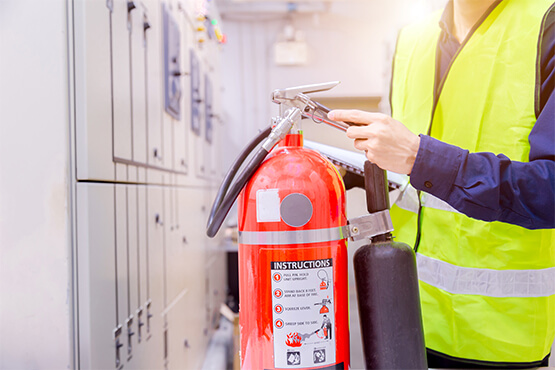REACH Registration post-Brexit
Although the UK’s departure from the EU means that the EU REACH regulation no longer applies, UK REACH has stepped in to fill the gap, and UK-based companies exporting to the EU are now facing two chemicals regulation frameworks to deal with when before there was just one. Is your company ready for the challenge?
Although the UK’s departure from the EU means that the EU REACH regulation no longer applies, UK REACH has stepped in to fill the gap, and UK-based companies exporting to the EU are now facing two chemicals regulation frameworks to deal with when before there was just one. Is your company ready for the challenge?
REACH
The REACH regulation introduced a new regulatory framework at EU level that in principle applies to all chemical substances. It seeks to protect human health and the environment from the risks that can be posed by chemicals by requiring companies producing and using chemicals to register them and ensure they can be safely used.
For example, certain substances, dubbed Substances of Very High Concern (SVHCs), would trigger a legal obligation to notify REACH’s responsible authority, the European Chemicals Agency (ECHA), if present in an article in concentrations as low as 0.1% by weight.
While the UK’s departure from the EU means that the EU REACH Regulation no longer applies, in light of the considerable public interest in protecting human health and the environment from hazardous chemicals, and the potential disruption to trade from leaving EU REACH, the UK Government has been quick to bring the EU REACH regulation into UK law, establishing UK REACH.
UK REACH/EU REACH – the same but different
In essence, UK REACH is the same as EU REACH. UK manufacturers are required to hold a valid registration for substances under UK REACH as they would have done under EU REACH. UK importers are required to hold registrations under UK REACH for the chemical substances they bring into the relevant territory from the UK, EU/EEA or the rest of the world.
The Health and Safety Executive (HSE) has taken on the role of the ECHA, the threshold limits of SVHCs that trigger the requirement to notify are largely the same, and many of the processes and procedures are likely to be familiar to companies used to dealing with EU REACH.
However, there are differences. The UK and EU lists of SVHCs (Candidate Lists) are not the same, with some updates to the EU Candidate List not yet incorporated into the UK list. While Northern Ireland remains part of EU REACH under the Northern Ireland Protocol, other elements of EU chemicals regulation (e.g. the Waste Framework Directive) do not apply.
Most importantly for UK-based companies seeking to export to the EU, although EU REACH and UK REACH run in parallel, they are separate and independent regulatory frameworks. This has some profound implications for UK-based companies seeking to export to the EU.
For transactions between UK- and EU-based companies involving substances or articles to which UK REACH and EU REACH apply, there are now two sets of regulatory hoops to jump through: UK REACH in the UK, and EU REACH in the EU.
Registering a chemical under UK REACH does not exempt the registering company from the requirement to register under EU REACH, and just as UK companies can no longer register chemicals under EU REACH, EU companies cannot register chemicals under UK REACH.
For UK-based companies with a long-established relationship with an EU importer or exporter of a previously EU REACH-compliant article or substance, this is likely to mean additional paperwork that the importing company may not be ready or willing to take on.
For complex supply chains and outsourcing agreements involving substances and components sourced from UK, EU and non-EU manufacturers, or where each sub-assembly crosses multiple borders during the manufacturing process, the implications in terms of administration and risk are considerable.
Do Only Representatives have the answer?
Both UK REACH and EU REACH allow an exporting company to appoint an Only Representative (OR), established within the UK for UK REACH or within the EU for EU REACH, to take on responsibility for compliance with the applicable REACH framework for the importer.
In theory this offers the exporting company a way to achieve compliance without placing additional obligations on the importer, but of course the services of an Only Representative will not be free.
In addition, the HSE and ECHA recommend the appointment of an Only Representative who has a sufficient background in the practical handling of the substances being traded and the information related to them.
For more esoteric uses or chemical compounds, or for end products that require multiple authorisations, finding an Only Representative with the requisite knowledge may be challenging. For supply chains where billions of pounds or euros may be at stake, entrusting compliance with chemicals regulation to a third party represents a considerable risk.
Compliance and divergence
The penalties for non-compliance with UK and EU REACH rules can be significant. In 2019 a UK company director was sentenced to 10 months in prison for the online sale of paint stripper containing dichloromethane, a suspected carcinogen which is restricted under REACH legislation.
Having to jump through the same regulatory hoop twice is burdensome and risky enough, but as outlined above there are already differences between UK REACH and EU REACH. These differences will make life more difficult for UK companies trading with EU counterparts, and there is a very real possibility that the UK will diverge further from EU chemicals regulatory frameworks over time. This would further increase the costs and complexity of compliance.
For transactions between UK-based and EU-based companies, the importing company and exporting company will need to share information to ensure both ends of the supply chain have the information they need to comply with the applicable regulatory framework, and legal advice will be essential in ensuring contracts and outsourcing agreements make provision for this.
The challenge for UK companies is not just achieving compliance with UK REACH as it is now, but also future-proofing their trading and outsourcing arrangements against future regulatory divergence and rising compliance costs. Legal advice will be essential in negotiating these arrangements and identifying and allocating risk.
Contact

Nigel Lyons
Partner
nigel.lyons@brownejacobson.com
+44 (0)330 045 2802








































